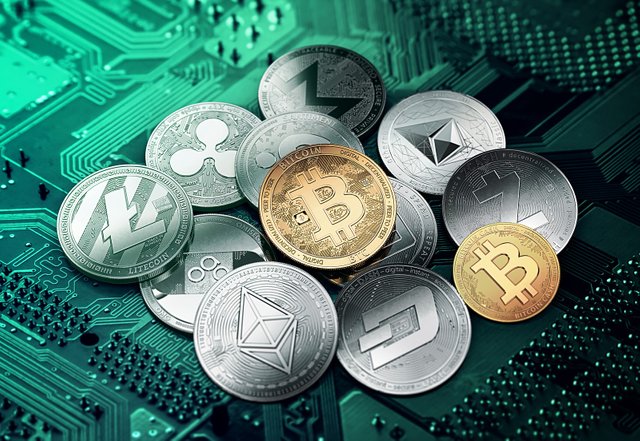Beginner's Guide to CryptoCurrency: Crypto Wallets Pt.1

If you are just tuning in and consider yourself a Beginner in the Crypto World, I highly recommend the previous segment in the guide: https://steemit.com/beginners/@ridge-sin/beginner-s-guide-to-cryptocurrency

In this segment, we will go over the 3 main types of Crypto Currency Wallets: Hot-Wallets, Hardware Wallets and Physical Wallets.

A Crypto Currency Wallet is just like it sounds, a platform on which you can store your Crypto Currency. However not all Wallets are compatible with every coin, to the contrary, many coins require a specific Wallet for proper storage. More often than not, the coin's developer will also have created a Wallet for their coin. However there are rare cases of coins not having any Wallet, thereby making it impossible to store the coin safely. When this is the case, it is often ill-advised to purchase large amounts of the coin.

A Hot-Wallet is a Wallet that is hosted on an online server, often developed specifically so that the Host in question is also locked out of the Wallet, offering optimized protection that ONLY you have access to. That being said, the Wallet is still online and therefore vulnerable to cyber-terrorism. The upside to Hot-Wallets is accessibility, as you can access your assets via Computer or Mobile Device. For this reason, Hot-Wallets are great for beginners and day traders, but long-term investors should explore other options.

A Hardware Wallet is a digital Cold-Storage device that is built specifically to accommodate Crypto Currency, allowing users to safely store their assets on a platform that is effectively disconnected from any network, and therefore better protected from the possibility of cyber-terrorism. The downside to Hardware Wallets is the inaccessibility, as you need the Hardware Wallet in your possession and a compatible Desktop or Mobile device to be able to access your assets. For this reason, Hardware Wallets are great for long-term and mid-term investors, but short-term investors and day traders should explore other options.

A Physical Wallet is an analog Cold-Storage device that is created by printing a Private Key and Public Address on a piece of paper, plastic or metal, often including sets of QR Codes for easy data storage and access. Physical Wallets are often referred to as one of the safest storage options for Crypto Currencies, as they are never connected to any network. However it is important to take certain safety measures to ensure the highest possible security when creating a Physical Wallet, such as encrypting the keys and printing them from an offline source. In addition, because all of the keys are stored in a single location, it is important to keep any Physical Wallet hidden from plain sight and guarded from public access. Physical Wallets are great for all levels of investors, but it is important to take caution when creating your Physical Wallet to ensure it is done securely and correctly.
As you can see, the common difference between the types of Crypto Currency Wallets is security and accessibility.
In the next segment, we'll talk more about how some tools that accompany Crypto Currency Wallets: Private Keys, Seed Phrases and Public Addresses.

Hi, if you are interest trading crypto currency , your chance to get reward by providing latest crypto news and trading opportunities by join the daily event I am organizing, check my post for more details.
Thank you, I'll look into it!